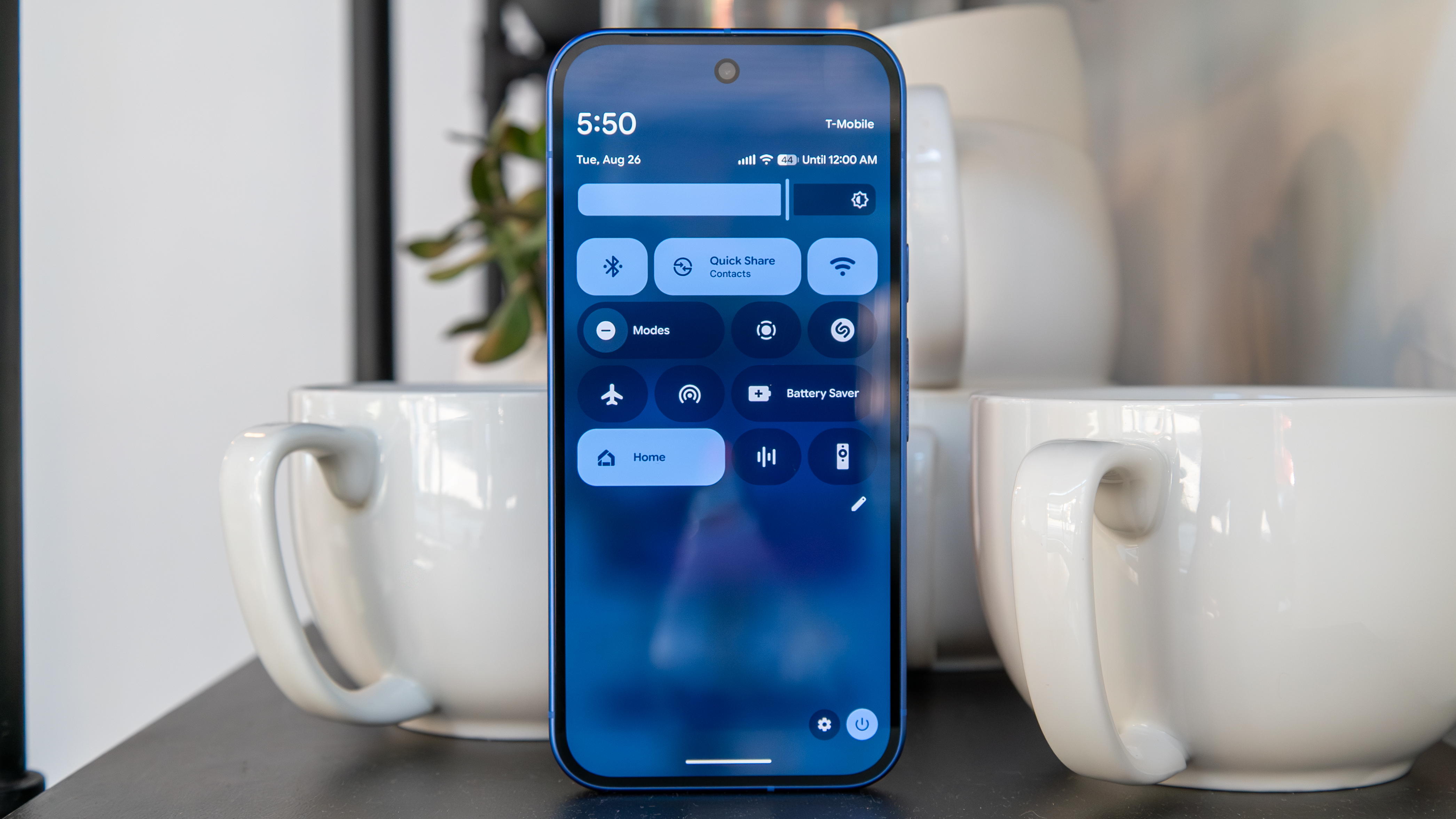Nothing will prioritize AI over Phone 3, but is that the right call?
Nothing may be spreading itself too thin.
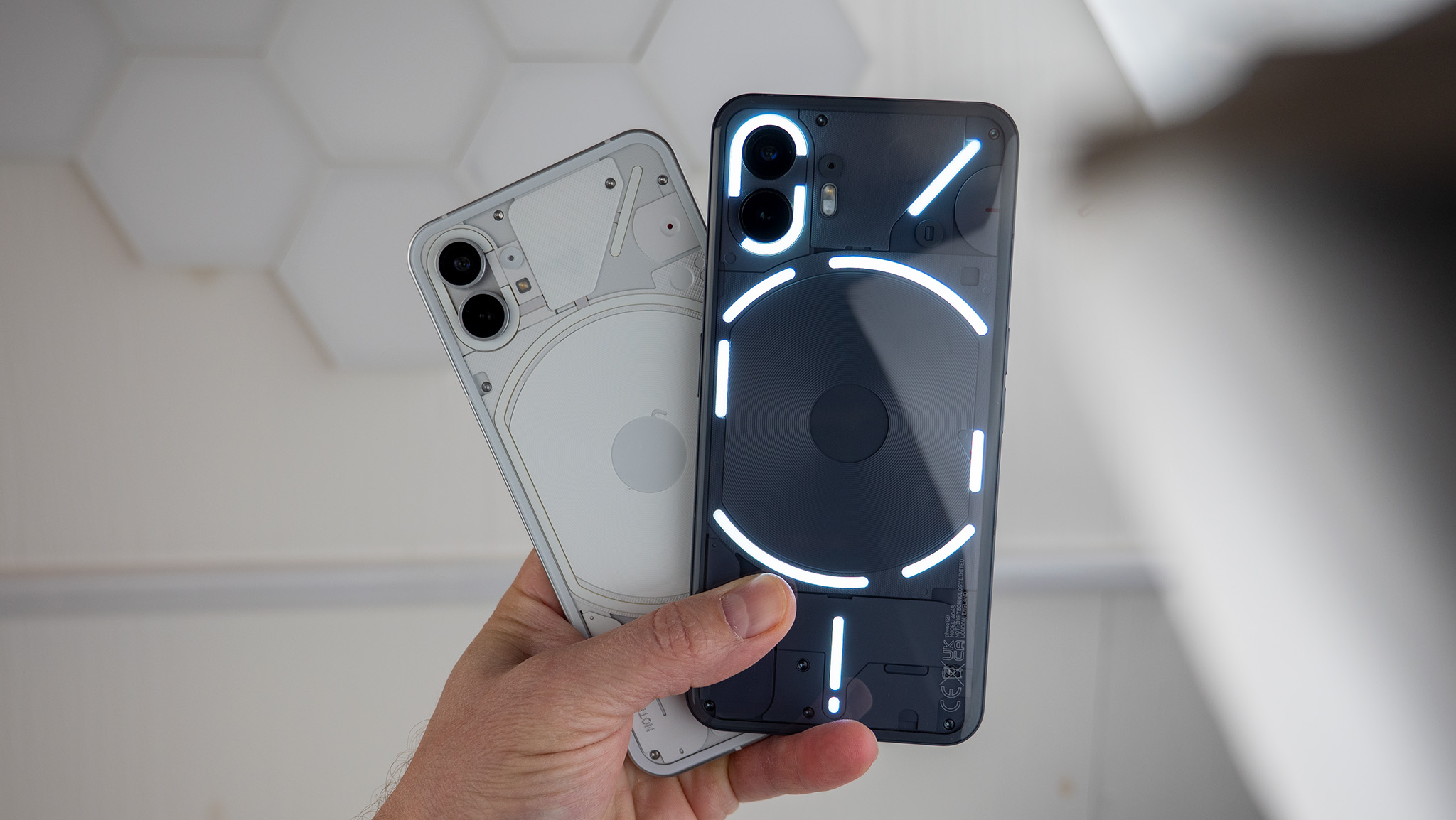
What you need to know
- Nothing's CEO, Carl Pei, gave an update on the company's plans for AI and Phone 3 in a video update posted to X (formerly Twitter) on Wednesday, June 5.
- The company says that Phone 3 will not come this year, and will instead be released sometime next year with AI at the center.
- Phone 1 debuted in July 2022 and Phone 2 was released in July 2023, so this move is a departure from Nothing's annual release schedule.
If you had been hoping to see what the Nothing Phone 3 has in store, this week was probably a disappointing one. Nothing CEO Carl Pei took to X (formerly Twitter) to give an update on the company's mobile plans. Unsurprisingly, it involves a whole lot of artificial intelligence. But Pei also mentioned the existence of Phone 3 for the first time, albeit in passing, and said it won't be coming this year.
That's a departure from the yearly release schedule for Nothing phones that the company established during its brief history as a brand. The Nothing Phone 1 debuted in July 2022, and the Nothing Phone 2 was a neat follow-up in July 2023. Unfortunately, there won't be a Nothing Phone 3 coming out next month.
"For the last two months, we’ve been designing and prototyping AI interactions. Today, I want to show you some initial concepts to give you a better idea of what I’m talking about," Pei wrote in the post. "Expect this to be improved and gradually introduced, starting with Phone (3) next year. It’s important we get the product right, integrating hardware and AI in a way that is both useful and brings a smile to people’s faces."
There's been a lot of hype around AI. Some great, some confusing. It’s great to see new companies rethinking the user experience and form factors. However, there is no doubt that smartphones will remain the main consumer AI form factor for the foreseeable future. With over 4… pic.twitter.com/ERJc7xhwBaJune 5, 2024
Based on these comments, it feels like Nothing is delaying the release of Phone 3 to make sure its ambitious AI features are ready to go. That isn't a bad strategy, per se. In fact, it's a lot better than the approach other companies have taken — I'm looking at you, Humane and Rabbit — which began with underwhelming and expensive products and culminated with potentially-dangerous batteries in the hands of AI Pin users.
Still, I think it's worth questioning whether Nothing is making the right call here. Despite being a fairly young company, Nothing already has made three phones and five pairs of earbuds by its main brand. Throw in the CMF by Nothing sub-brand, and you've got more earbuds, a smartwatch, and a to-be-released smartphone. I have to wonder whether the company would be more successful if it just stuck to one or two product categories while it grew, rather than trying to tackle so many different products and markets at once.
It's a better approach to AI than we've seen from other companies
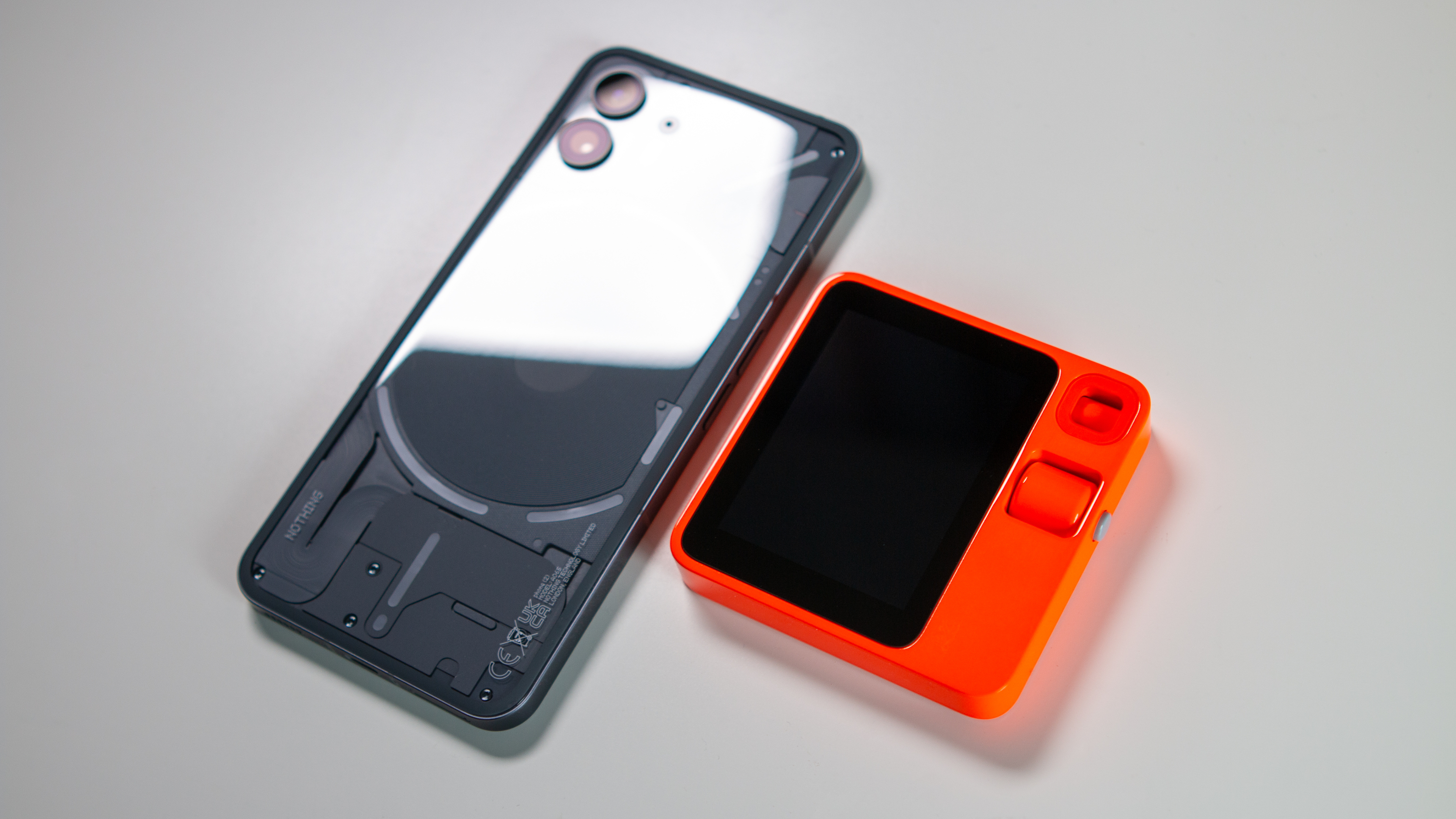
A few companies have tried to create standalone products with AI as the centerpiece, but it hasn't worked out too well so far. To be fair, companies like Humane and Rabbit aren't entirely wrong. There's so much less money to be made in an AI app than there is in a hardware product. However, as the launch of the Humane AI Pin and Rabbit R1 have shown, rushing AI products to be "first" doesn't mean anything if they aren't actually any good.
Nothing is saying out loud what many in the industry have been speculating for a while. When the dust settles, we won't be using AI apps or other hardware devices. The artificial intelligence will be incorporated right into your mobile operating system, whether that's stock Android, iOS, or a skin like Nothing OS. In a way, we've already seen this concept in action with ChatGPT integration on Nothing devices.
Get the latest news from Android Central, your trusted companion in the world of Android
The company is likely making the right move in trying to make AI the focus of its smartphones. "It’s great to see new companies rethinking the user experience and form factors," Pei wrote. "However, there is no doubt that smartphones will remain the main consumer AI form factor for the foreseeable future. With over 4 billion users and over 1 billion smartphones shipped every year—the numbers speak for themselves."
The question is whether delaying Phone 3 to make AI features instead is the right move, and that remains to be seen.
What will AI on Phone 3 look like?
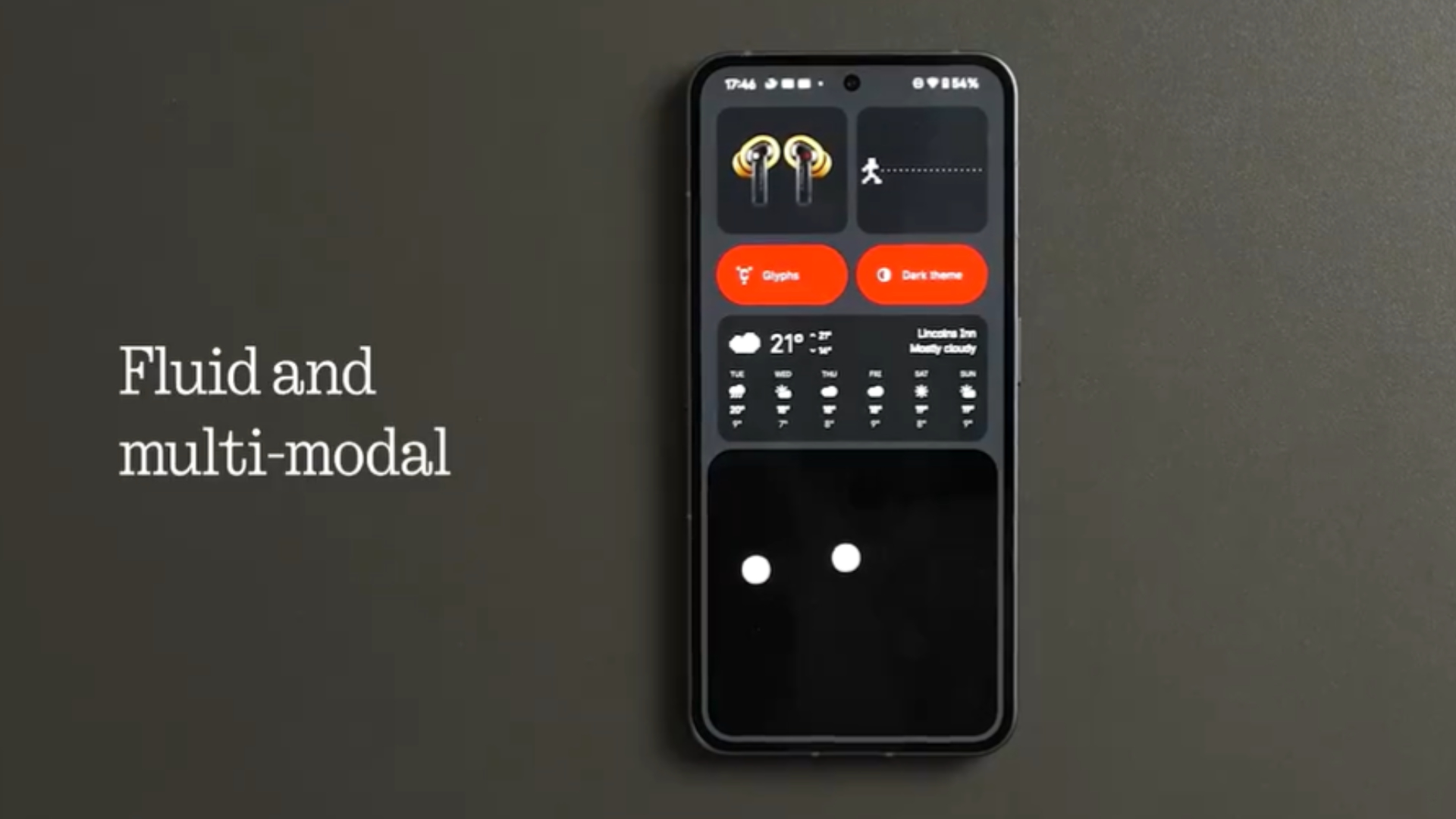
Nothing only showed off a proof-of-concept of what AI might look like in Nothing OS. It looks a lot like OpenAI's implementations of AI-based voice assistants. There is one white orb that becomes the UI for the initial AI voice assistant setup, just like the voice mode for ChatGPT. However, Nothing also takes notice of what Rabbit aimed to do with the R1 and its large action model concept.
"The way we use our smartphones needs to be redefined. The current user experience hasn't evolved for more than a decade," said Pei. "The next era needs a highly personalized, dynamic, and cross-device interface. One that also creates a human connection that makes tech feel more at ease to interact with."
Eventually, Nothing wants to create a mobile OS experience that frees you from apps, but it notes that won't happen immediately.
Delaying Phone 3 might be proof Nothing is spread too thin
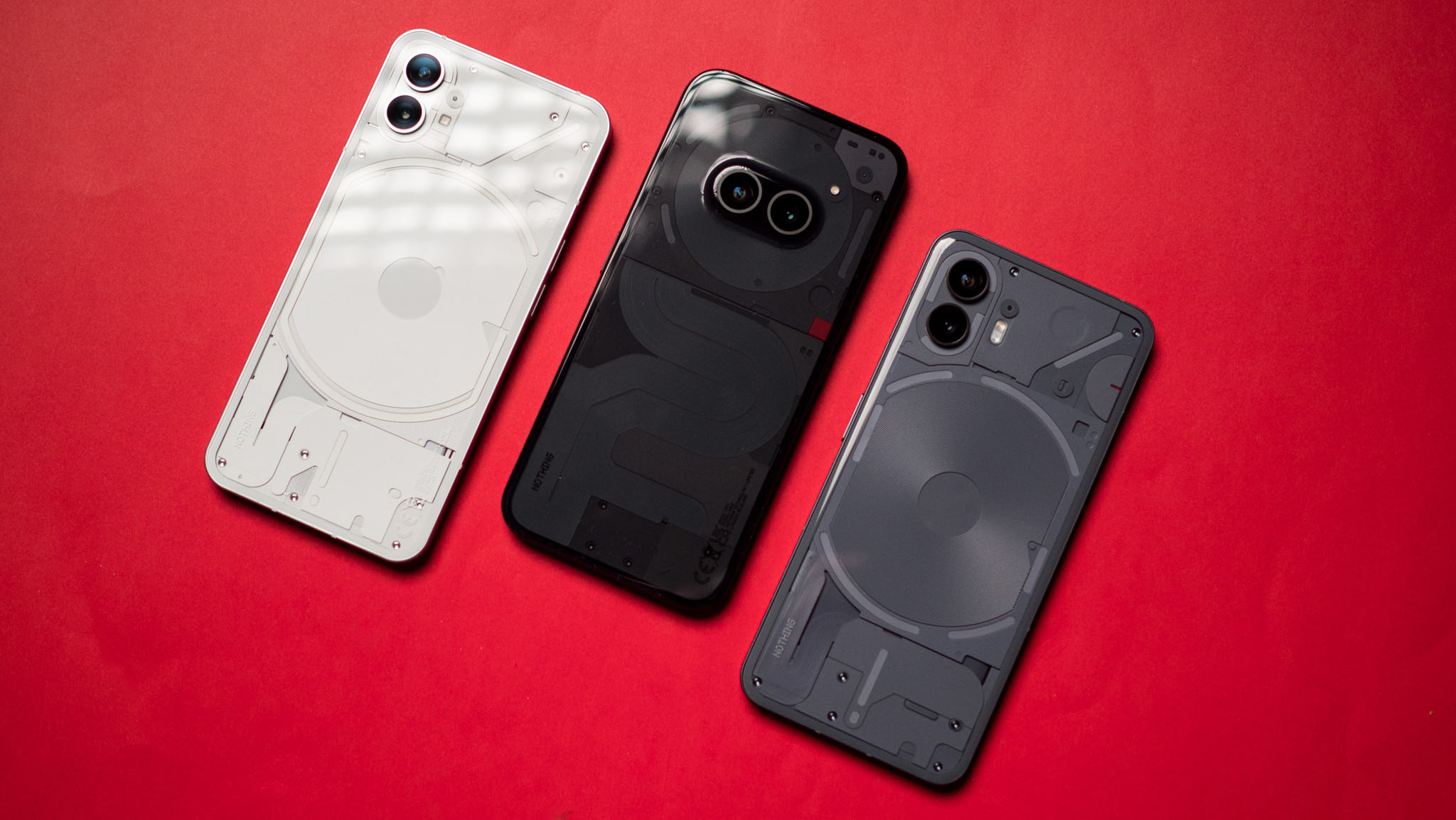
Ideally, Nothing could work on adding AI features to Nothing OS while also releasing Phone 3 on its usual annual schedule. Assuming that most of the company's planned AI features don't run on device, like its competitors, there's no reason they couldn't be shipped as a software update later. The delay could mean Nothing is trying to bring on-device AI processing to the Phone 3, or that it wants AI features to be the main reason you go out and buy Phone 3. Either way, it seems weird that Phone 3 appears to be delayed while Nothing devotes its time to AI software and budget CMF products instead.

Brady is a tech journalist for Android Central, with a focus on news, phones, tablets, audio, wearables, and software. He has spent the last three years reporting and commenting on all things related to consumer technology for various publications. Brady graduated from St. John's University with a bachelor's degree in journalism. His work has been published in XDA, Android Police, Tech Advisor, iMore, Screen Rant, and Android Headlines. When he isn't experimenting with the latest tech, you can find Brady running or watching Big East basketball.
You must confirm your public display name before commenting
Please logout and then login again, you will then be prompted to enter your display name.
